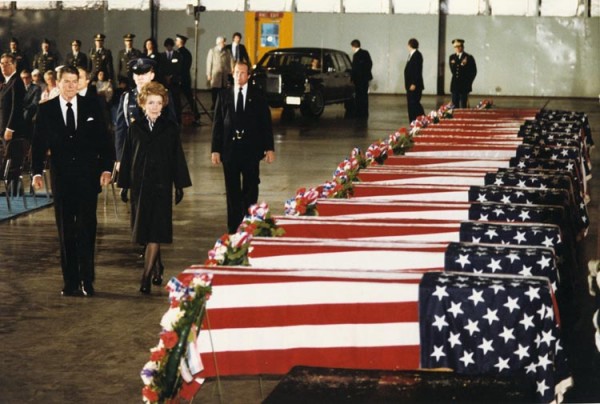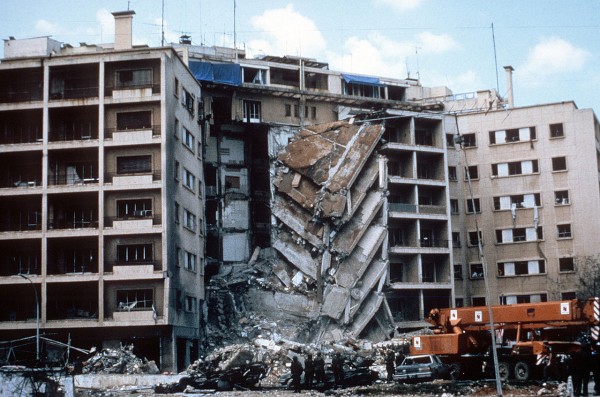
The Supreme Court rejected an appeal from Iran’s central bank Wednesday and cleared the way for nearly $2 billion of its frozen assets to be turned over to American families whose loved ones were victims of terror attacks.
The case brought together the Obama administration and the Republican-led Congress, as well as most justices on the high court.
Federal law usually bars lawsuits against foreign governments, but makes an exception for terrorism cases. Even so, plaintiffs who win such claims have a hard time collecting judgments.
More than 1,000 U.S. plaintiffs had won claims against Iran, most of them for injuries suffered in the 1983 bombing of the U.S. Marine barracks in Lebanon. In 2012, President Obama issued an executive order to freeze the assets “of any Iranian financial institution, including the central bank of Iran, that are in the United States.”
Bank Markazi, Iran’s central bank, fought the order and insisted the assets held in its New York branch were the property of others. But Congress then adopted a special law, the Iran Threat Reduction and Syria Human Rights Act of 2012, which said these assets “shall be subject to execution” to satisfy claims against Iran for acts of terrorism. The law cited by name the specific judgments won against Iran.
Lawyers for the Iranian bank sued, contending Congress had breached the separation of powers by intervening in a pending legal case. They lost before a district judge and the U.S. Court of Appeals in New York.
When they appealed to the Supreme Court, U.S. Solicitor Gen. Donald Verrilli urged the court to deny the appeal. “In the view of the United States, the law-abiding members of the international community should not find such legislation cause for alarm,” he said last year
The high court heard the case nonetheless, apparently at the insistence of Chief Justice John G. Roberts Jr., but affirmed the lower court’s ruling by a 6-2 vote.
Justice Ruth Bader Ginsburg said Congress can pass laws to make sure that judgments are paid. “In accord with the courts below, we perceive…no violation of the separation-of-powers principles, and no threat to the independence of the judiciary,” she said in Bank Markazi vs. Peterson.
Roberts, who has been the strongest defender of the independence of the courts, said Congress may not decide individual cases. “At issue here is a basic principle, not a technical rule,” he wrote. Only Justice Sonia Sotomayor joined his dissent.

The April 18, 1983 United States embassy bombing was a suicide bombing in Beirut, Lebanon, that killed 63 people, mostly embassy and CIA staff members, several soldiers and one Marine. 17 of the dead were Americans. It was the deadliest attack on a U.S. diplomatic mission up to that time.
Judge Royce Lamberth of U.S. District Court in Washington, D.C. May 30, 2003, had determined that the bombing was carried out by the Lebanese militant group Hezbollah with the approval and financing of senior Iranian officials, paving the way for the victims to seek damages.
LA Times/YL

Leave a Reply
You must be logged in to post a comment.